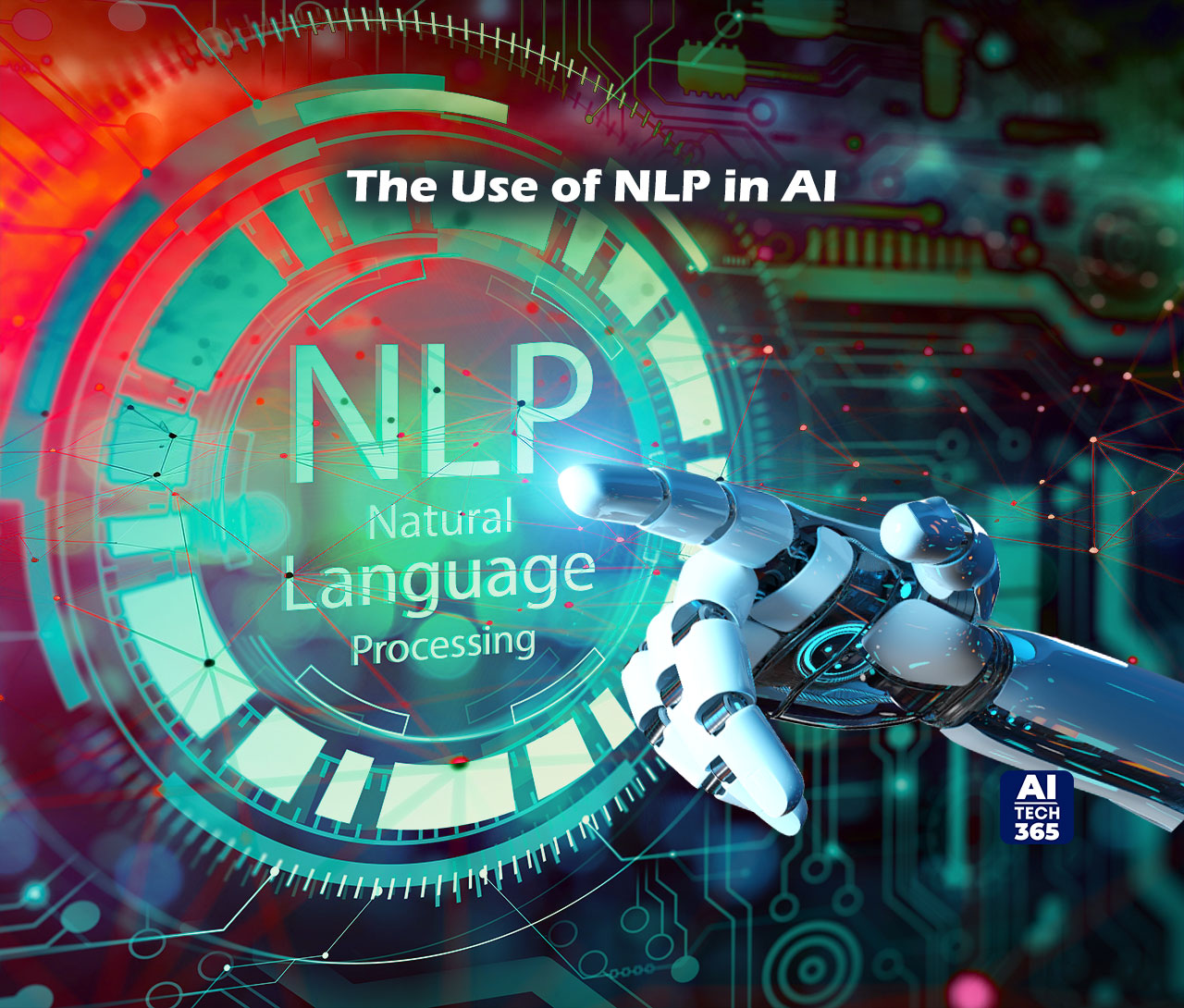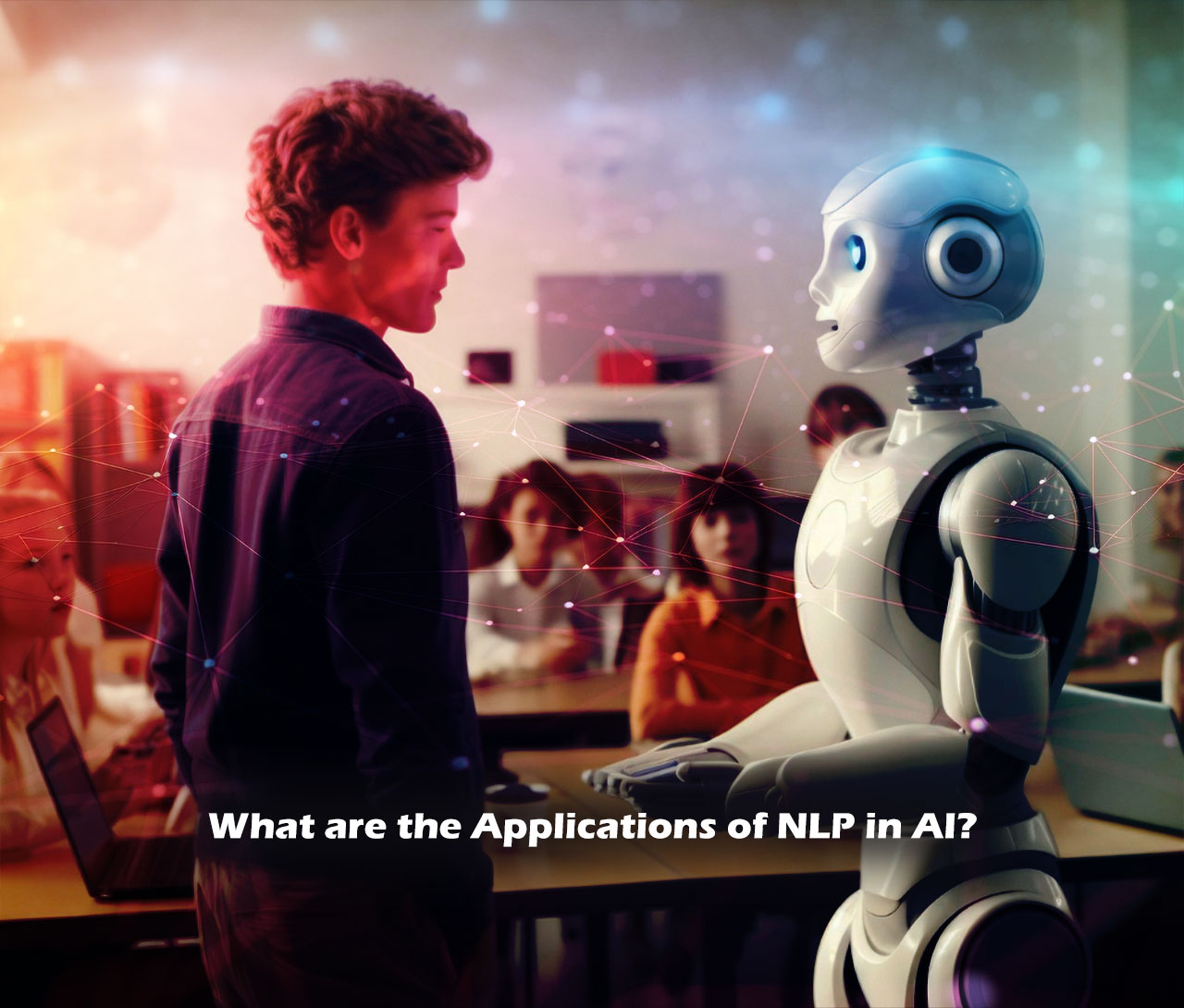Ever wondered how computers can understand and respond to human language, and unlock a realm of possibilities in the digital landscape? Enter NLP in AI, where the synergy of linguistic understanding and artificial intelligence opens doors to unprecedented advancements. As we delve into this cutting-edge technology, we’ll unravel the intricate ways in which machines are trained to comprehend and interact with human language, revolutionizing the landscape of artificial intelligence. Let’s get started!
What is NLP in AI?
Natural language processing (NLP), a subset of artificial intelligence, is dedicated to enabling computers to comprehend human language. To develop programs capable of processing and analyzing extensive text and spoken words, NLP integrates elements such as computational linguistics, machine learning, and deep learning.
NLP empowers programs to translate text, respond to verbal commands, and efficiently summarize large volumes of data. Key benefits for businesses include:
- Detection and processing of substantial data from diverse sources like social media, online reviews, and news reports.
- Provision of valuable insights into brand performance.
- Identification and resolution of issues to enhance overall performance.
- Optimization of processes for more efficient and effective data analysis.
- Generation of insights for applications such as sentiment analysis, content classification, and beyond.
The Use of NLP in AI
 NLP, an essential aspect of artificial intelligence, offers practical solutions to real-life issues, which makes it an intriguing and significant area of study. The comprehension of human language plays a pivotal role in validating AI’s intelligence capabilities. Through the utilization of deep learning algorithms, AI has been steadily enhancing its performance in Turing tests. In fact, Ray Kurzweil, Google’s Director of Engineering, predicts that by 2029, AI systems will reach a level of intelligence comparable to that of humans.
NLP, an essential aspect of artificial intelligence, offers practical solutions to real-life issues, which makes it an intriguing and significant area of study. The comprehension of human language plays a pivotal role in validating AI’s intelligence capabilities. Through the utilization of deep learning algorithms, AI has been steadily enhancing its performance in Turing tests. In fact, Ray Kurzweil, Google’s Director of Engineering, predicts that by 2029, AI systems will reach a level of intelligence comparable to that of humans.
NLP is an expanding field within computer science with the potential to revolutionize various industries. Its importance serves as a strong testament to the capabilities of AI in striving towards human-level intelligence. Consequently, advancements and progress made in NLP will have a substantial impact on the overall advancement and expansion of AI.
Given its significant influence on the future of artificial intelligence and its global impact, exploring the field of Natural Language Processing (NLP) is essential. There is still a wealth of knowledge to gather and discoveries and progress to be made in the realm of NLP and AI.
Also Read: A Step-by-Step Guide to Mastering Deep Learning Vs Neural Networks
How Does NLP in AI Work?
NLP, a vital facet of artificial intelligence, empowers computers to comprehend and interpret spoken and written human language. By merging computer science, linguistics, and machine learning, NLP investigates the dynamics of communication between computers and humans in natural language. The ultimate aim is to enable computers to both interpret and generate human language, thereby enhancing human efficiency and facilitating seamless interaction with machines. NLP ensures that AI can grasp the intricacies of everyday natural human languages, whether expressed in writing, speech, or even hastily scribbled notes. This form of AI has become intricately woven into our daily lives, shaping the harmonious interface between humans and computers.
What are the Applications of NLP in AI?
 NLP finds extensive utilization in the realm of AI, specifically in domains like cybersecurity. This technology has various noteworthy applications within AI. To provide some insights, here are a few significant examples of NLP applications in the field of AI:
NLP finds extensive utilization in the realm of AI, specifically in domains like cybersecurity. This technology has various noteworthy applications within AI. To provide some insights, here are a few significant examples of NLP applications in the field of AI:
Cyber Risk Automation: NLP finds application in the field of cybersecurity, enabling the implementation of sophisticated automation techniques. For instance, cyber risk automation may substantially reduce the need for manual assessments, resulting in up to a 90% reduction in effort and significant cost savings for organizations worldwide, including those within the Global 500 list.
Automated Information Gathering and Generation: NLP has the advantage of automating the process of gathering and generating information, which makes it a valuable tool for both offensive and defensive purposes in the realm of human-machine collaboration within the field of cybersecurity.
Phishing Protection: NLP is utilized for phishing protection to not only detect known issues or attacks as they happen but also detect completely unfamiliar misconfigurations and attacks, thereby enhancing the efficiency and efficacy of analysts.
Language Data Processing and Analysis: NLP in AI plays a vital role in the processing and examination of vast quantities of linguistic data, which has become increasingly significant in the realms of human-machine interaction and cybersecurity.
Understanding and Responding to Human Language: Natural language processing empowers machines to comprehend, decipher, and react to human language. It enables the accomplishment of tasks such as sentiment analysis, translation, and text summarization. These capabilities are of great value in numerous AI applications, including cybersecurity.
Web Scraping and Web Crawling: NLP in AI is a valuable tool utilized for web scraping and web crawling. Its purpose is to extract and organize extensive amounts of information, specifically when dealing with the dark web. The dark web presents difficulties due to the intricate vocabulary utilized by malicious individuals, making it arduous to navigate and monitor effectively.
Bottom Line
NLP in AI is an ever-evolving frontier that continues to redefine our digital landscape. As we reflect on the journey of this technology through this blog, it becomes clear that NLP is not merely a technological marvel but a transformative force that bridges the gap between human communication and machine comprehension. Its applications, from understanding spoken and written language to enhancing human-machine interaction, are reshaping industries and everyday experiences. As NLP becomes increasingly integrated into our daily lives, the future promises a more seamless and intuitive collaboration between humans and AI.


